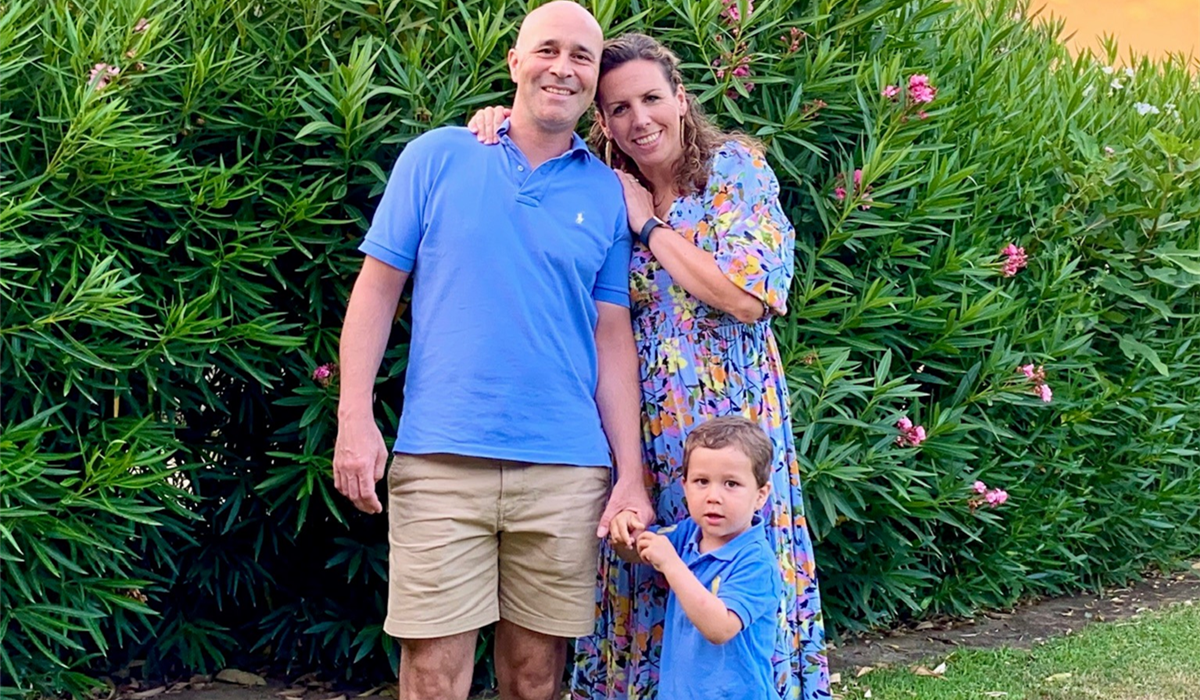Finding passion in life and work

We spoke to CEIBS alumnus Dr. Robert Seiler, Member of the Management Board, Co-Owner, Director Corporate Strategy at The Mobility House, about the impact of his time at CEIBS on both his personal and professional life. He told us about the deep connections he made, and we discovered how working on a CEIBS group project in 2011 on the first carbon-neutral MBA, led him to addressing the global challenge of decarbonizing both the energy and mobility industry.
Why did you choose the MBA programme at CEIBS?
Robert: I first travelled to🔸快乐10分玩法说明 in 1995 with my father and was deeply impressed. After that, I wanted to travel more in🔸快乐10分玩法说明 with my backpack and via public transport. I realized that to do that, I needed to have some Chinese language skills, and so I started to learn. I continued learning for the next ten years, but in 2010, I noticed I had begun to lose my Chinese speaking abilities and I wanted to brush up on my language skills. Whilst thinking of a bigger purpose for my stay in🔸快乐10分玩法说明, I decided to combine my travels with an MBA, which was also on my bucket list.
I was looking for schools and CEIBS was the rising star amongst all the MBA schools, especially in Asia, so that brought me there. I was always interested in the connection between Europe and Asia.
Before I joined CEIBS, I was working for Switzerland’s largest power producer, Axpo. There, I set up a business unit on carbon emission reduction. From that perspective,🔸快乐10分玩法说明 was also interesting, it was not only the biggest market of the future, but also the largest global carbon emitter. So, I saw the potential to make big change.
.png)
Are there any projects that you worked on at CEIBS which stand out to you?
Robert: One was the carbon neutral project. Joining forces with other MBA students, we called ourselves ’The Decarbonators’ and we planned to decarbonate the school’s campus. Even after the project finished, we continued to work on this in our spare time. I also took over as President of the Energy Club. To this day, I am in touch with the person who handed the club over to me. It’s really nice to have lasting contact with people from the same industry.
Are you still in touch with other people from the programme?
Robert: Yes, we were around 180 people and, of course, you can’t keep in touch with everyone, but I am part of a really close group of 12 friends. We have attended each other’s weddings, and we meet up every few years across the world.
What did you take away from CEIBS?
Robert: As I was the oldest student in my batch, I was already quite experienced compared to the other students. Even though I had a lot of knowledge beforehand, CEIBS gave me important frameworks to work with because understanding and exploring the theory behind it all explains why and how to do things in the business. Those frameworks were very interesting and have been important during my career since leaving CEIBS.
Another important aspect was the awareness of cultural differences and the potential that comes with diverse teams. You experience yourself that a team becomes stronger when it’s diverse in culture, gender, and age. That strengthens the team because you get more perspectives.
I also took away a strong network of both friends and business contacts. As the company I work for looks to expand into🔸快乐10分玩法说明 and Asia, I hope to reactivate my CEIBS network and I know that my former classmates and peers will be there to help me if they can.
.png)
What impact did CEIBS have on your personal life?
Robert: Brace for impact! I met my future wife at CEIBS! I got married to someone from my cohort and we now have a son together. That was a big and unexpected change in my personal life. I remember laughing with my classmates at the beginning of our studies about how they might meet their future spouse during the MBA, but I didn’t think anything of it. In fact, in our group of close friends, four couples ended up getting married!
Another impactful experience for me was the course with Professor Lorna Doucet. I have a PhD in physics and therefore, I’m a very logical person. Her teaching about emotional intelligence and how to apply this to life and business was very useful and life changing for me.
How did you land in your current role?
Robert: After my PhD in 2004, my first boss was the founder of a small consulting company in the energy sector. I had already left that company, when in 2010 he called me and said that he had founded another company in the field of electric vehicle battery monetization and wanted me on board.
I was interested as I liked the idea and the business model. But I was on my way to🔸快乐10分玩法说明 for about two years, so I asked him to keep in touch and said that if there was still an opportunity in two years when I was back in Europe, we should connect. That’s exactly what happened. In early 2012, I joined the company as Director of Strategy.
It was a big ride. In the beginning, we were eight people in a small apartment. And now we are around 300 people with offices in Switzerland, Germany, the US, France, and soon Singapore.
.png)
How has your MBA been relevant in your career?
Robert: In the end, of course, the whole company profits from my input and what I learned at CEIBS. In the later semesters, I specialized in entrepreneurship and strategy and this is exactly the knowledge I need and still use every day.
What are you passionate about in your current job?
Robert: I am passionate about this unique situation that we are currently in. We are between two industries – energy and automotive – undergoing heavy disruption and, at the same time, they’re merging. That has never happened before on the planet. We saw many disruptions, for example, in telecommunications, from landline phones to mobile phones to now smartphones.
Now the energy world is building more renewable energy capacity and goes into intermittent solar and wind. The automotive industry goes electric and carmakers are becoming energy companies. Tesla’s Master Plan III is an example of this. Tesla is no longer just a car company but an energy company and their energy business will get much bigger than their car business. On the other hand, energy companies are starting to utilize car batteries. In the future, everything will be linked, because cars offer battery storage which is needed in the energy world.
That is my passion in this business. It’s a once in a lifetime chance to not just witness something like that, but also to shape it.
How do you receive CEIBS community updates, and are you actively engaged in the community?
Robert: I was in the early days after my graduation very active in one of the alumni organisations. I was Vice President of the Switzerland alumni network. And I also attended regular meetings with the German alumni as my wife comes from Cologne. I have since handed the baton to other alumni and I get my updates from newsletters and WhatsApp groups.
_0.png)
How did your life change with CEIBS?
Robert: I am still in the same industry in a way, the energy industry, reducing carbon emissions. But my life before CEIBS was very Switzerland-focused and now it’s completely different – it’s global. I saw many colleagues at CEIBS doing an MBA in order to change industries. That was never the case for me. I knew I wanted to stay in the energy industry, but to learn a lot in order to manage it even better. Now, my career is not just in the energy industry, but also in the automotive industry, so that is also a big change. For me, the goal remains the same: to create an emission-free energy and mobility world. I think I’m closer than ever in achieving that goal.
Tell us more about The Mobility House
Robert: Our company’s idea is simple. On one hand, the energy world is going renewable. But a solar plant or a wind farm produces energy not always when needed. So you need energy storage. On the other hand, you have the car industry, putting more and more batteries into cars. But a car is usually used only 5% of the time for driving. That valuable asset battery is idle for 95% of the time. So the idea is to use the battery in the car – which is a very expensive asset – to help the energy industry to store the energy and then to release it when it’s needed. The market size is predicted to be around 200 billion dollars a year, just in Europe and the US. That will grow steadily as soon as Asia joins in. Our target is to maximise the value of a battery by commercialising its flexibility. With the value we create we enable zero-emission and zero-cost charging for all.














